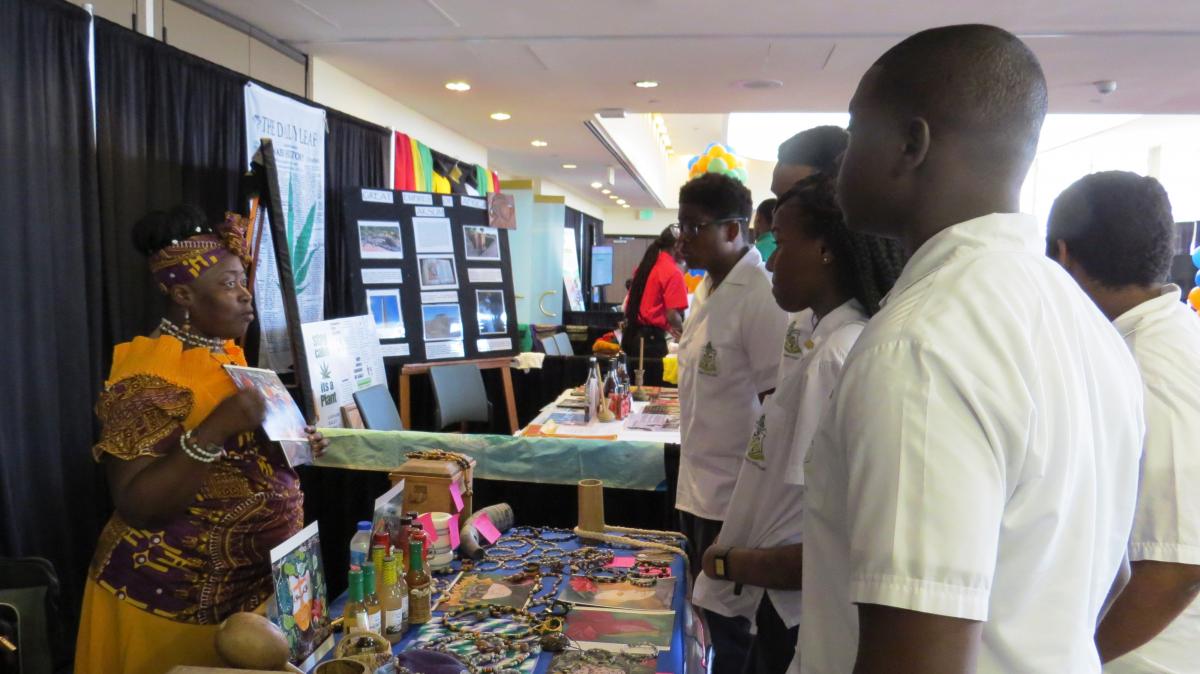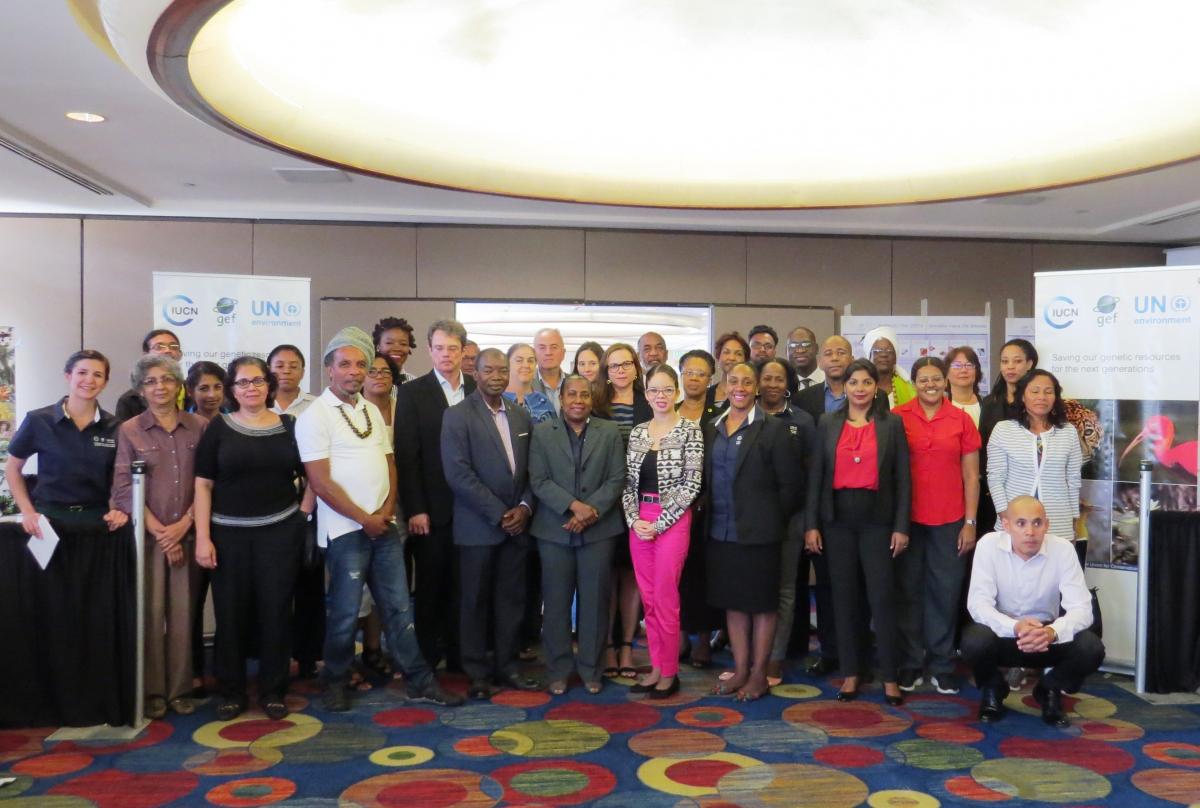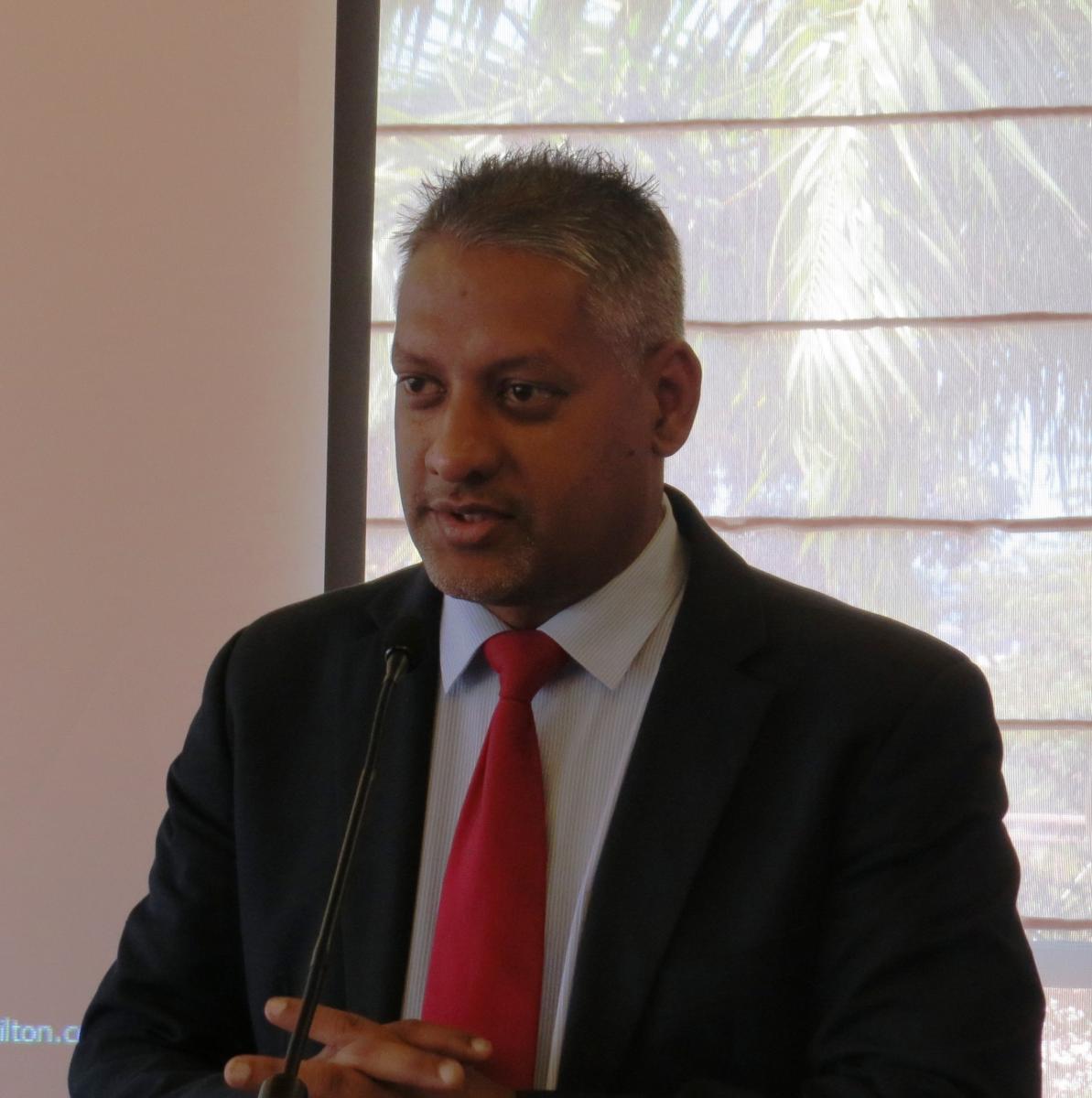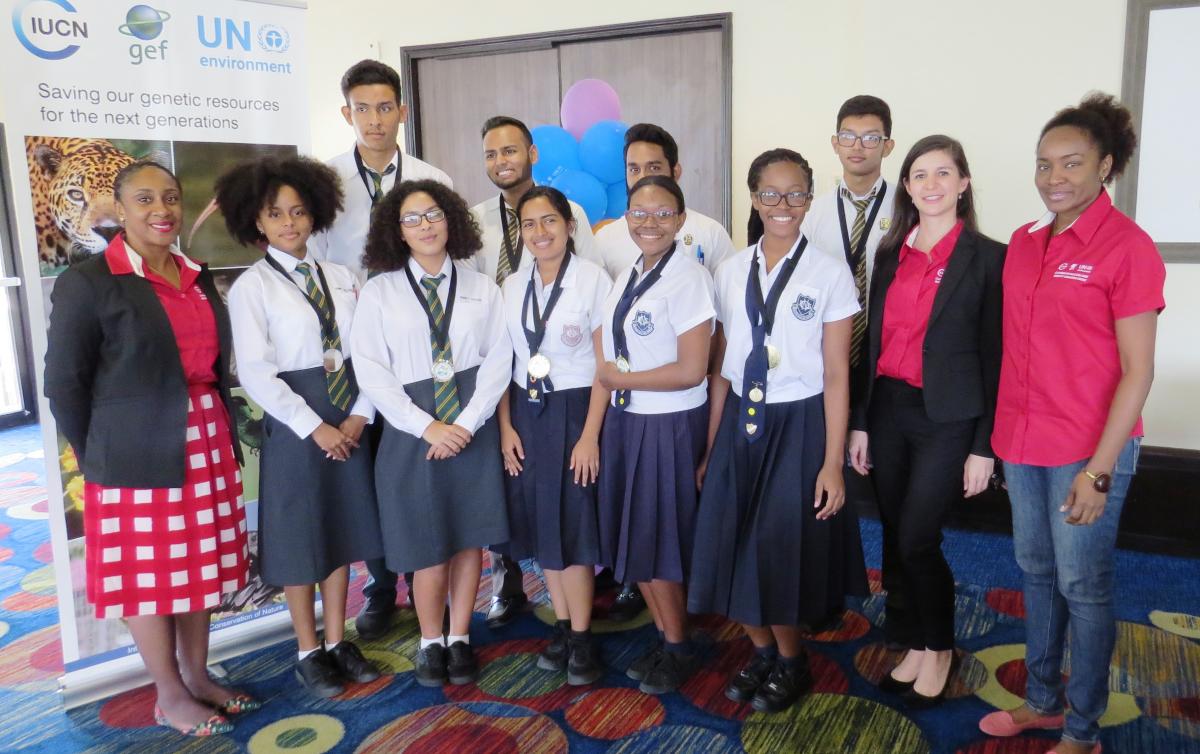Caribbean ABS Week: Advances and Challenges for Genetic Resources and Traditional Knowledge
Three days of technical presentations related to accessing genetic resources and sharing of the benefits derived from their utilization, a Biodiversity Expo including cultural presentations on traditional knowledge by Indigenous Peoples and a School Debating Competition were part of the ABS Week.
Port of Spain, Trinidad (IUCN) — Caribbean Access and Benefit Sharing (ABS) Week took place in Trinidad and Tobago from January 29-31, within the framework of the multi country project, “Advancing the Nagoya Protocol in Countries of the Caribbean Region”, aimed at generating awareness of and support for the Nagoya Protocol, under the Convention of Biological Diversity (CBD).
Representatives of the Caribbean ministries and countries focal points on ABS mainly from Antigua and Barbuda, Guyana, St. Kitts and Nevis, Jamaica, Trinidad and Tobago, Grenada, St. Lucia and Barbados, participated in the event, as along with representatives of The Caribbean Community (CARICOM) and The Organization of Eastern Caribbean States (OECS).
Hon. Clarence Rambharath, Minister of Agriculture, Lands & Fisheries of Trinidad and Tobago in his speech emphasized two challenges that must be overcome to achieve the objectives in this topic: to ensure opportunities for real capacity building and ensure opportunities for technical support. “Nothing we achieved could be done without technical support. Legislative agenda keeps changing and it is very important that you land your spot and move it up, and then come back to do technical support”, Rambharath said.
In her opening remarks, Mrs. Joan Norville, Biodiversity and Ecosystems Management Coordinator, OECS Commission, expressed: “Our appreciation to IUCN for inviting us to be part of the project Steering Committee. I trust that our engagement has contributed to a successful coordination and execution of this project”.
“IUCN is privileged to support the efforts of Caribbean countries to protect both its biodiversity and the traditional knowledge of its people. To this end, we aim to meet this objective by building alliances with key stakeholders and supporting the countries towards the implementation of the Nagoya Protocol”, said Mrs. María Pía Hernández, Biodiversity and Rights Unit Coordinator, IUCN Regional Office for México, Central America and the Caribbean.
The ABS Week allowed IUCN to present the project outcomes among which can be mentioned the design of practical guidelines and contractual models to facilitate arrangements for genetic resources and fair and equitable sharing of benefits derived from their utilization. The project also has been working on the development of ABS policies and legislation for countries participating in the project, which was directly related to the decision by Antigua and Barbuda and St. Kitts and Nevis to ratify the Nagoya Protocol.
Mrs. Jannel Gabriel, Biodiversity Coordinator in the Department of Sustainable Development of Saint Lucia, explained what they have done over the last 3 years in the framework of the ABS project: “We developed the policy and we have legislation clauses which will give force to the Nagoya Protocol once we have ratify it. We also had done wide spread public education reinforcing the value of genetic resources and the traditional knowledge that comes along. The work that we have done have set the foundation but of course there is so such more that has to be done in terms of raising awareness and getting some of our key policy makers to make the linkages between sustainable development and tourism, as well as with finance and economic growth.”
“We will be looking IUCN to continue to support us and collaborate with us and to give us the technical support as well as the scientific support and to make linkages with other institutions that have the capacity to assist us on the technical and scientific level”, Mrs. Gabriel added.
The project also developed a virtual platform, including a permitting system and species data base, for fostering effective communication amongst countries on ABS issues which will further enhance the ratification process through effective communication amongst parties on ABS.
“IUCN will be delighted to continue supporting the legislative, institutional and social enable conditions of the participating countries of the project in order to move forward fair and equitable Access and Benefit Sharing of genetic resources and effective participation of local communities and Indigenous People”, María Pía Hernández said.
The ABS project is funded by GEF with UN Environment as its Implementing Agency and IUCN as its Executing Agency, also received co-finance from Caribbean governments, regional institutions as OECS, Convention of Biological Diversity (CBD Secretariat) and GIZ-ABS initiative.
More information
Nancy Arroyo Monge
IUCN ORMACC








